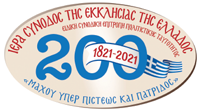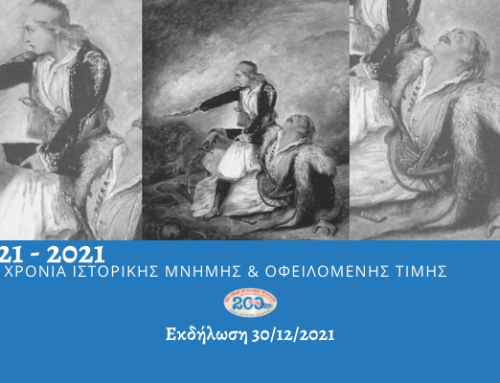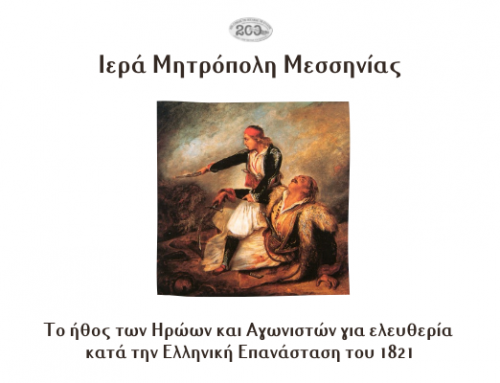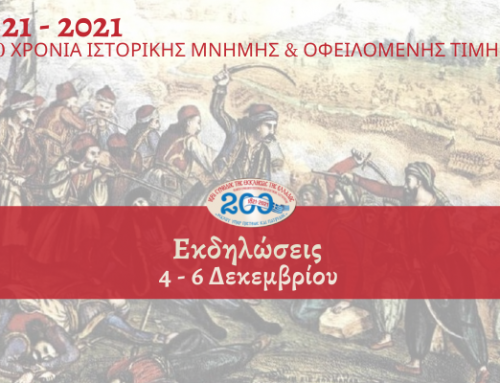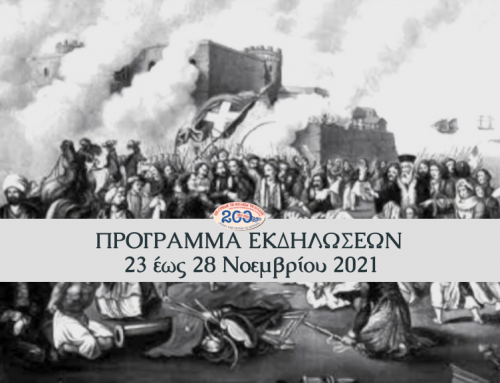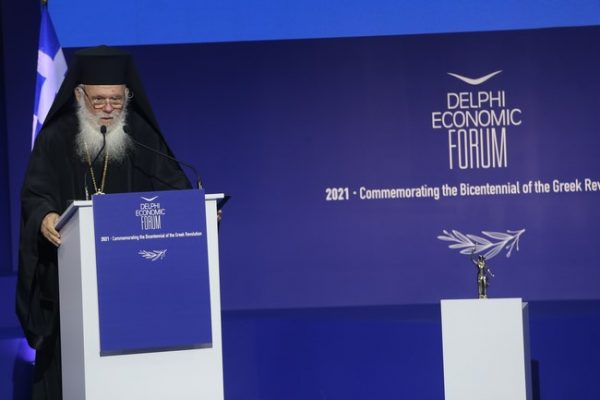
In his address to the 6th Delphi Economic Forum, HB Archbishop of Athens and all Greece Ieronymos II referred to the offering of the Church during the period of the Turkish Rule and of the struggle for Freedom, which not only rallied the community but also taught the language and faith to those enslaved.
The proceedings commenced today in the Zappas Palace by the opening speech of HE the President of the Hellenic Republic Ms Aikaterini Sakellaropoulou and the greetings of the Presidents of Estonia and Slovakia, HB he Archbishop, HE the Vice-President of the European Commission Mr Margaritis Schinas, and the Chairwoman of the Greece 2021 Committee, Ms Ghianna Anghelopoulou-Daskalaki.
On its first day, the timetable of the Forum included, among others, topics such as 200 years since the Greek Revolution, Shipping, Blue Economy, Healthcare, History, Culture and the Pandemic, European Neighbourhood Policy, Transatlantic Relations, European Economy.
Within the framework of the thematic unit on the 200 years since the Greek Revolution, in his address the Archbishop emphasized that “the founding event of the modern Greek state did certainly not arise in conditions of a historical vacuum. It is rooted in the collective consciousness of an enslaved people, which had a deep sense of its identity. The tens of revolutionary movements which took place from the fall of Constantinople to the Palingenesia prove the truth of this statement. The multitude of Patriarchs who lost their lives in violent ways in the hands of the Ottoman power throughout the Turkish Rule clearly sets the seal of faith on the cause of freedom, a faith which secretly pervaded the downtrodden nation. It revivified it, constituted its self-consciousness, set criteria. The majority of teachers at the schools which operated during the period of the Turkish Rule, when they would operate unobstructed, were clergymen. The awakening work of Saint Cosmas the Aetolian, with the dozens of schools he founded, left an indelible mark on the popular soul. During more difficult periods, it was again the worship of the Church which not only rallied the community but taught the language and faith to those enslaved. Along with that, there was the offering of the Neomartyrs. There were not only the Patriarchs; there were Bishops, simple priests, monks, and lay persons who gave their lives for their faith. A choir of eminent and unknown heroes of Faith shouldered the burden of the vision and the search for a meaning on the part of an entire nation”.
The Archbishop also noted that “our Church went side by side with the people also during the Revolution. At that time again the numerous sacrifices of its officials, as witnessed by the protagonists of the events, fighters, foreign diplomats, and others, sealed the Struggle. The first Bishop who fell fighting and led the succession of those slaughtered during the war events was Bishop Isaiah of Salona. Member of the ‘Friendly Society’, he played a leading part in the uprising in Roumeli and remained forever in our memories to encapsulate in his person, along with many others, faith and love of motherland. As did so many others … An entire people which lived what General Makriyannis expressed, namely that without faith in their religion nations cannot exist, was able to comprehend and respond to the challenge and the dilemmas of History. Not only by letting itself be carried by the laws of historical conjuncture but also by attributing as spiritual meaning to its struggle”.
